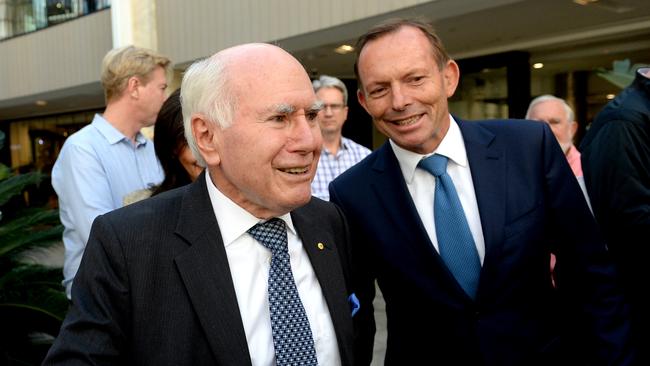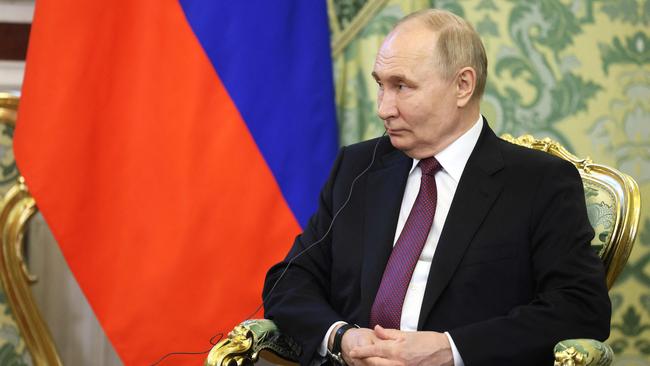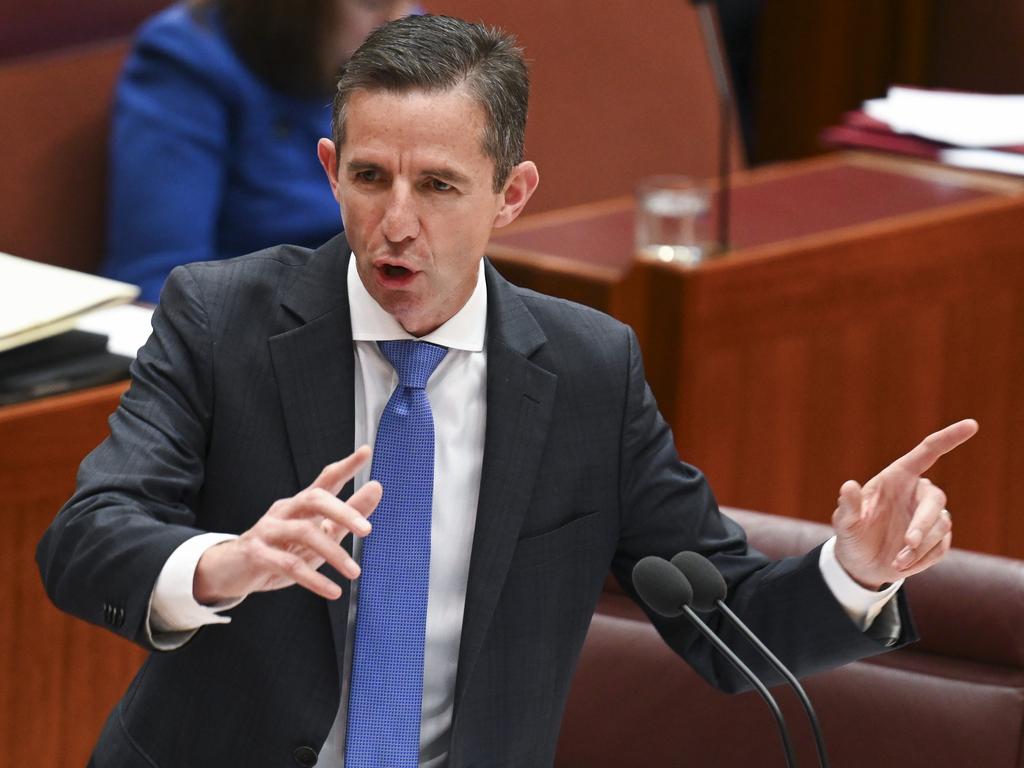Russia’s Kremlin sanctions former PMs John Howard and Tony Abbott
John Howard and Tony Abbott are among the latest Australians — including a psychiatry director, a CEO and two judges — to be sanctioned for their role in what the Kremlin says is a ‘Russophobic campaign’.

John Howard and Tony Abbott are among the latest Australians to be sanctioned by Russia for their role in what the Kremlin says is a “Russophobic campaign by the collective West”.
Moscow has released a list of 27 Australians that have been added to its sanctions list, which also includes Sydney priest Bill Crews, Vice Chief of Defence Robert Chipman, and former NSW Premier Barry O’Farrell.
Russia’s Foreign Ministry said the individuals would be denied entry to Russia for an “indefinite term”, and warned more names would be added to its catalogue of banned Australians.
“Considering the fact that official Canberra does not intend to renounce its anti-Russia line and continues to impose new sanctions, we will update the Russian stop list still further,” it said in a statement.
Mr Abbott, who once vowed to “shirtfront” Russian president Vladimir Putin, said he pleased his advocacy for Ukraine had been so prominently recognised by Moscow.
“I’m surprised it’s taken them so long and am proud to be in such company,” he told The Australian on Friday.
The list dated Wednesday includes Federal Court judges Michael O’Bryan and Geoffrey Kennett, Executive Council of Australian Jewry co-chair Alex Ryvchin, and three former Australian ambassadors to Kyiv: Robert Tyson, Doug Trappett and Bruce Edwards.

Ed Cavanough and Nick Dyrenfurth, who head the Labor-linked McKell Institute and John Curtin Research Centre, are on the list, along with former Coalition pollster Mark Textor.
Melbourne financial adviser Chris Garnaut, Business NSW president Lyall Gorman, former CEO of Lifeline Pete Shmigel and Sydney banker Sergey Budkin have also been sanctioned, along with Royal Prince Alfred Hospital director of psychiatry Tanya Dus, and University of Sydney, sociologist Olga Boichak.
A day before the new sanctions were issued, Mr Abbott had told Sky News that Australia needed to boost its aid to Ukraine to help it win its war against Vladimir Putin’s forces.
“They have been given enough not to lose but they haven’t been given enough to win,” the former prime minister said.
“Australia has been, frankly, embarrassingly dithering… It’s relatively puny assistance to Ukraine.”
Mr Howard’s spokesman declined to comment on new sanctions list.
Moscow said the bans were in answer to sanctions imposed by Australia, which has slapped travel bans and seized assets from more than 1200 Russian individuals and entities.
“In response to politically motivated sanctions against Russian individuals and legal entities, imposed by the Government of Australia as part of the Russophobic campaign by the collective West, Russia denies entry to Russia for an indefinite term for an additional 27 Australians,” the Kremlin said.
Some of those named on the list are linked to Australia’s the Supporters of Ukraine Network, which has appealed for government support for a plan to use Russian assets to rebuild Ukraine.
“We make this plea because Australia can punch well above its weight at no cost to the Australian taxpayer,” said the letter, whose signatories included Mr Howard, Dr Dus and Reverend Crews.
Ukraine’s Ambassador to Australia Vasyl Myroshnychenko said the Kremlin wanted to punish his country’s supporters across the world, even though they were unlikely to visit Russia “now or ever”.
He said there was growing Australian support for the need to fund Ukraine’s reconstruction, and urged the Albanese government to work with the G7 to find a legal mechanism to transfer $300bn in frozen Russian assets to Kyiv.
“It would serve as a strong deterrent to other potential aggressors, forcing them to consider the financial consequences of attacking other nations,” Mr Myroshnychenko said.
The new sanctions come 12 months after the federal government evicted Russia from an embassy site close to parliament house, where it had planned to build a new diplomatic mission.





